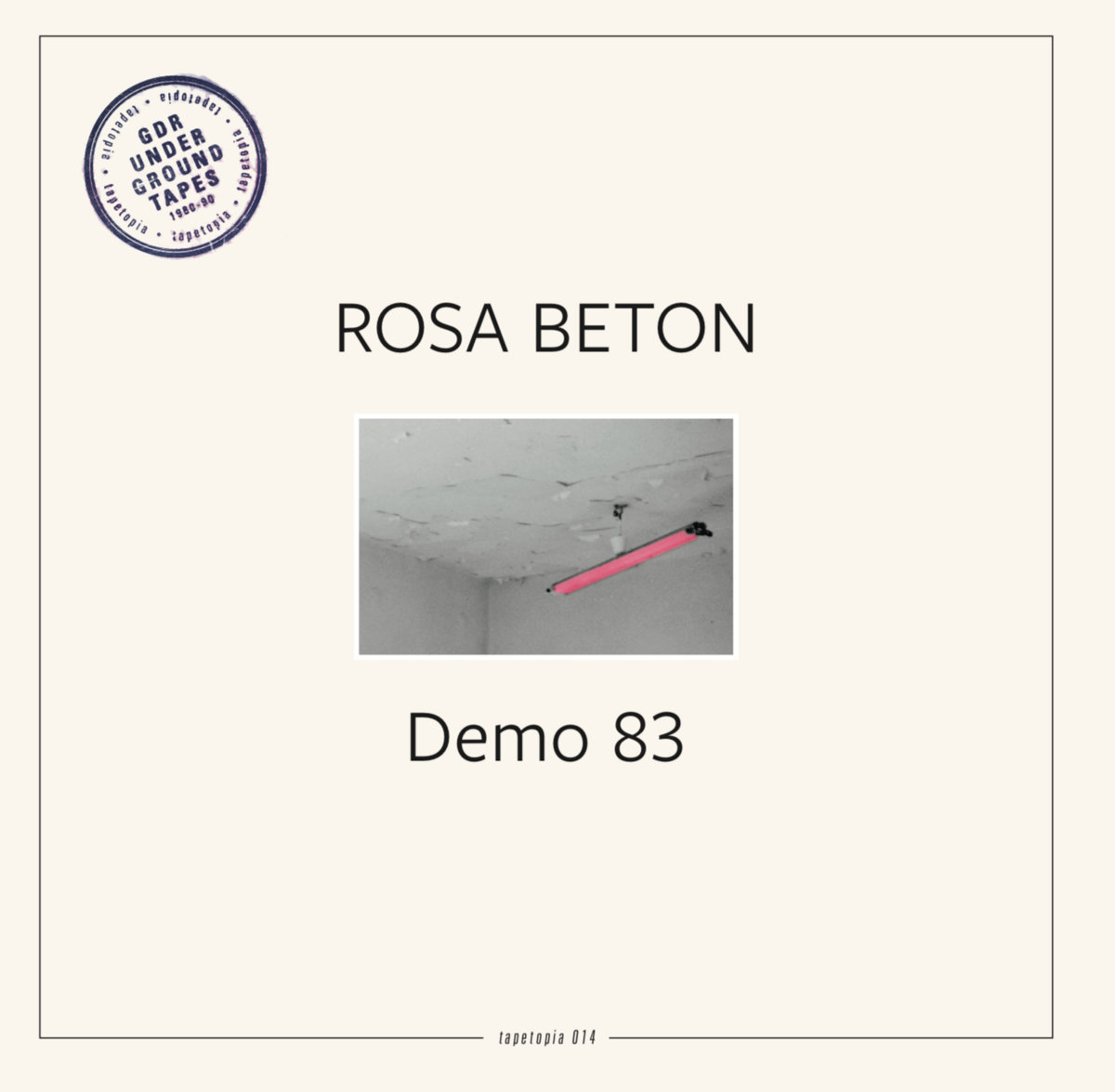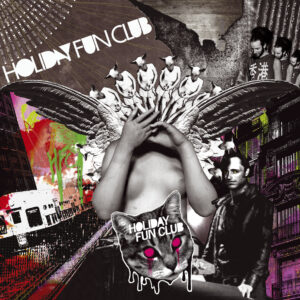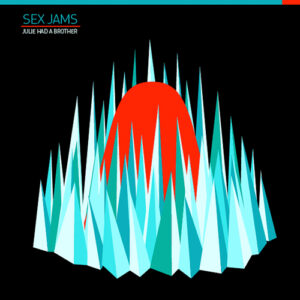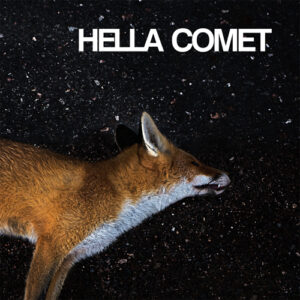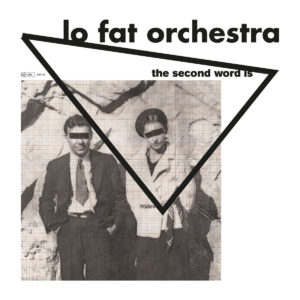Beschreibung
„A tape with the rather factual title “Rosa Beton – Demo 83” gained currency in 1983, albeit among an inner circle, or as it says in a lexical note on the band: Rosa Beton “achieved beyond-regional fame in and around Berlin”. Unlike some other bands that were merely rumoured to exist, this name was widely recognized in the East Berlin punk scene and the demo tape was received with some delight. It had been made in the suburb of Ho?now, or more precisely in music enthusiast Thomas Wagner’s childhood bedroom. The band was less a classic combo than a short-lived pro- ject run, for a brief underground season, by 16-year-old Wagner and Ronald Mausolf, who was known as “Mausi” and had just come of age.
An old clunker of a four-track machine served as an impor- tant nutritional supplement for the duo, allowing bass and vocals to be overdubbed separately. For a project without a professional background, especially for an illegal punk band in the East, this conventional procedure was clearly exceptional. Punk bands would usually record vocals and instruments simultaneously and on a cassette recorder. Recording gear was not readily available in the GDR, and it was disproportionately or prohibitively expensive. The adversities that had to be overcome in starting up a punk band were certainly challenging for teenagers. Rooms for rehearsals were few and far between despite wide- spread vacancies, and public space was taboo thanks to the state. Concerts, whether in flats and studios or under the protection of the Protestant church, remained rare events and, moreover, risky; starting with the party-loyal neighbour alerting the People’s Police as if there were a war on, to the ever-present “digging activity” of the Stasi. The only planned appearance by Rosa Beton never materi- alised. Whether it was the goddesses of fate who averted a show or the Stasi who prevented it can no longer be reconstructed. In any case, Rosa Beton never played live and thus joined a long list of GDR punk bands that, in the early 1980s, did not make it out of illegality into a public sphere, not even into a conspiratorial one.
ausi compensated for the band’s lack of live performances by at least distributing a few copies of the demo tape. Among others, at the Kult, the Kulturpark Pla?nterwald, which provided an initiation field for the Berlin punk scene and a hotspot with a pull beyond it. The punks adapted the Kulturpark to their understanding of an amusement park. They would thrash about to Schlager music and pogo to third-rate Ostrock bands, make fun of overwhelmed provincials, hang out and exchange half-baked ideas as superior knowledge. In between, the punks liked to ride the chain carousel, there was a certain liking for chains. The Kulturpark management made quite a fuss about the riot the punks put on. Initially they were banned from the chain carousel, then, when the punks switched to bumper cars, they were banned from the bumper cars, then from the roller coaster, and finally from the ghost train.
Unlike Mausi, Wagner was not at home in the punk scene. He felt no obligation to the statutes of their clientele or to the colour palette of punk. Like purple to the emperor, the colour pink was reserved for the Sex Pistols. In the colour theory of punk rock, pink is used if at all to refer to Jamie Reid’s iconographic artwork of “Never Mind The Bollocks”. As an admixture to concrete, the soft blur of pink in the name of a punk band was hardcore. But the contrastive pairing of emotion and hardness, of pink and grey concrete, confronted the anaemic grey of the East with a colour and with an emotion, so as to make the national depression become visible and audible. Rosa Beton got by without any punk-typical outbursts of hatred and belonged to the enlightened type of German punk that spared its listeners punk cliche?s of the sort of “Polizei SA-SS”. Rosa Beton‘s lyrics alone indicated that their content demanded for cli- che?s to be destroyed, no matter what style they resulted from. At times, Wagner’s lyrics resembled reflective short stories, and the songs themselves seemed downright sentient in the staccato sound system of East Berlin.
Thomas Wagner’s tendency towards complex lyrics even- tually led to complex sounds as well, the radicalism of which consisted in the refusal of genre standards. In 1987, he created the long-lasting experimental project Herr Blum. It was accompanied by a myriad of side projects, most famously Tom Terror & Das Beil, which kicked one of many notches in Wagner’s artist vita in 1989. in 1985, Mausi became the drummer for Reasors Exzesz, a hard- core band that had emerged from Betonromantik. Along with Betonromantik, Planlos, Rosa Extra or Sendeschluß, Rosa Beton belonged to the same first generation of East Berlin punk bands that today casts a woefully short shadow when the media spotlight is directed at punk rock in the GDR. For once, it was not the Stasi that was responsible for the end of Rosa Beton, but individual developments; the band faded away in the no-man’s land between punk and post-punk. The forking path of the two band members is a parable for the fact that punk in its early stages was a bundle of diverging forces; Wagner radicalised artistically, Mausolf politically. Yet the eternal question “Are you still punk today?” is only of interest to kitchen anthropologists who have no concept of the essence of radicalism. It is not those biographies that are the most punk who remained inhibitingly loyal to punk, but those that moved furthest away from punk, because otherwise “No Future” proves to be “Punks Not Dead”.“
Tracks
01. Reaktor (1983)
02. Unser ABV (1983)
03. Stehen bleiben is Verrat (1983)
04. Warum (1983)
05. Can't you see (1983)
06. Die Angst Der Allgemeinheit (1983)
07. Rosa Beton (1983)
08. Wir glauben (1983)
09. Maschinengewehr (1983)
10. Scheißstadt Berlin (1983)
11. 16 Jahre im Exil (1983)
12. Müde (1983)
13. Reaktor (2022)
14. Unser ABV (2022)
15. Stehen bleiben ist Verrat (2022)
16. Warum (2022)
17. Die Angst der Allgemeinheit (2022)
18. Rosa Beton (2022)
19. Wir glauben (2022)
20. Maschinengewehr (2022)
21. Scheißstadt Berlin (2022)
22. 16 Jahre Exil (2022)
23. Müde (2022)
